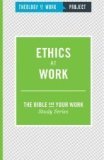Growing Fat and Pursuing Profit at the Expense of the Poor: Exploring the Book of Amos

The book of Amos is a powerful prophetic challenge to those of us who seek to follow God. The primary message is: if you say you love God then it must be reflected in the way you live.
In a sense, this book is talking to the Ken Lays and Bernie Ebbers of our world – people who feel as though they are following God faithfully, but in reality are living in two worlds – one where they practise piety, one where they practise business. And the two are as different as chalk is to cheese.
Amos is really the first of the biblical writers to go public with the truth that our worship goes hand in hand with our business – that our talk on finance and our walk with God can’t be separated.
As we read the book of Amos it quickly becomes clear how relevant are his words to our situation today. He’s speaking to a world where the “act of worship” has become reduced to the equivalent of a Sunday morning “worship hour” – rather than a life lived reflecting the values of Yahweh. Sounds very familiar, doesn’t it?
Here are some of the no-nonsense things Amos says:
People for them are only things – ways of making money.
They’d sell a poor man for a pair of shoes.
They’d sell their own grandmother!
I can’t stand your religious meetings.
I’m fed up with your conferences and conventions.
I want nothing to do with your religion projects, your pretentious slogans and goals.
I’m sick of your fundraising schemes, your public relations and image making.
I’ve had all I can take of your noisy ego-music.
When was the last time you sang to me?
Do you know what I want?
I want justice – oceans of it.
I want fairness – rivers of it.
That’s what I want. That’s all I want. (Amos 2:6-7; 5:21-24 The Message)
In this, one of the Bible’s most dramatic cries, Amos shows how God must feel when our business behaviour on Monday makes a lie of our songs on Sunday.
Eugene Peterson notes:
The biblical prophets continue to be the most powerful and effective voices ever heard on this earth for keeping religion honest, humble and compassionate. Prophets sniff out injustice, especially injustice that is dressed up in religious garb. Prophets see through hypocrisy, especially hypocrisy that assumes a religious pose. They pay little attention to what men and women say about God or do for God. They listen to God and rigorously test all human language and action against what they hear. [1]
Amos is unequivocal – our worship is meaningless if we are making profits unjustly through exploiting others and accumulating wealth. If we truly seek to love God, it must be reflected in the ways we think about profit, in the ways we acquire profit, and in the ways we use profit.
Eugene Peterson, The Message (Colorado Springs: NavPress, 2002), 1641.


 Ethics is about knowing and doing what is good or right, and workplace ethics is about knowing and doing what is good or right at work. For the Christian, this means applying the Bible and other resources of the Christian faith to help decide and do what is ethical or moral at work.
Ethics is about knowing and doing what is good or right, and workplace ethics is about knowing and doing what is good or right at work. For the Christian, this means applying the Bible and other resources of the Christian faith to help decide and do what is ethical or moral at work.